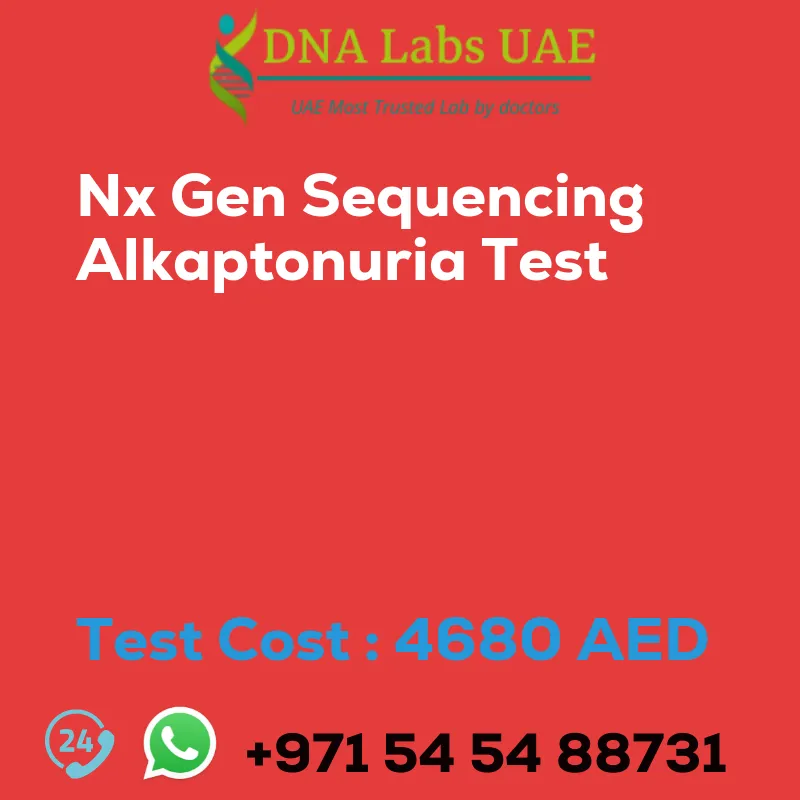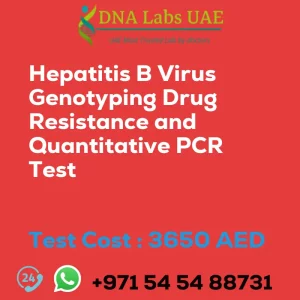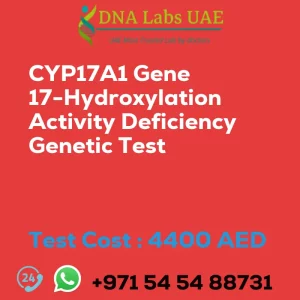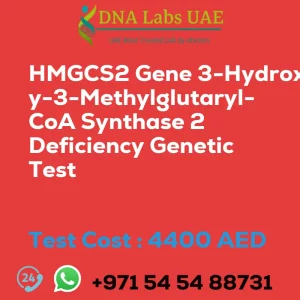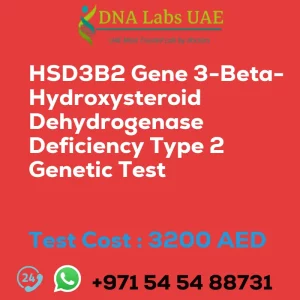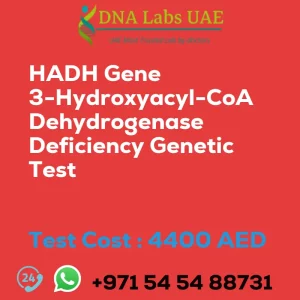Nx GEN SEQUENCING ALKAPTONURIA Test
Cost: AED 4680.0
Symptoms and Diagnosis
Alkaptonuria is a rare genetic disorder that affects the metabolism of the amino acids phenylalanine and tyrosine. It is caused by mutations in the HGD gene, which codes for the enzyme homogentisate 1,2-dioxygenase. This enzyme is responsible for breaking down homogentisic acid, a byproduct of phenylalanine and tyrosine metabolism.
To diagnose alkaptonuria, a genetic test called next-generation sequencing (NGS) can be performed. NGS is a high-throughput DNA sequencing technology that allows for the simultaneous analysis of multiple genes. In the case of alkaptonuria, NGS can be used to sequence the HGD gene and identify any mutations or variants that may be present.
Test Details
Test Name: Nx GEN SEQUENCING ALKAPTONURIA Test
Components: HGD
Price: AED 4680.0
Sample Condition: Submit 10 mL (5 mL min.) whole blood from 2 Lavender Top (EDTA) tubes. Ship refrigerated. DO NOT FREEZE. Duly filled Whole Exome Sequencing Consent Form (Form 37) is mandatory.
Report Delivery: Sample Daily by 9 am; Report 40 Working days
Method: NGS, Sanger sequencing
Test type: Inherited errors of metabolism
Doctor: Neurologist
Test Department: MOLECULAR DIAGNOSTICS
Pre Test Information
Duly filled Whole Exome Sequencing Consent Form (Form 37) is mandatory.
Test Process
The NGS process involves several steps. First, DNA is extracted from a blood or saliva sample obtained from the individual being tested. The DNA is then fragmented into smaller pieces and specific adapters are added to each fragment. These adapters contain sequences that are complementary to the sequences of the NGS platform. Next, the DNA fragments are amplified using polymerase chain reaction (PCR) to create multiple copies of each fragment. The amplified fragments are then loaded onto the NGS platform, which reads the sequence of each fragment in parallel. The resulting sequence data is then analyzed using bioinformatics tools to identify any mutations or variants in the HGD gene.
Advantages of NGS
NGS offers several advantages over traditional sequencing methods. It allows for the analysis of multiple genes simultaneously, reducing the time and cost required for testing. It also has a higher sensitivity and accuracy, enabling the detection of rare or novel mutations that may not be identified using other methods.
Conclusion
NGS is a powerful tool for diagnosing alkaptonuria and other genetic disorders. By sequencing the HGD gene, it can identify mutations or variants that may be responsible for the condition. This information can then be used for accurate diagnosis, genetic counseling, and personalized treatment planning.
| Test Name | Nx GEN SEQUENCING ALKAPTONURIA Test |
|---|---|
| Components | *HGD |
| Price | 4680.0 AED |
| Sample Condition | Submit 10 mL (5 mL min.) whole blood from 2 Lavender Top (EDTA) tubes. Ship refrigerated. DO NOT FREEZE. Duly filled Whole Exome Sequencing Consent Form (Form 37) is mandatory. |
| Report Delivery | Sample Daily by 9 am; Report 40 Working days |
| Method | NGS, Sanger sequencing |
| Test type | Inherited errors of metabolism |
| Doctor | Neurologist |
| Test Department: | MOLECULAR DIAGNOSTICS |
| Pre Test Information | Duly filled Whole Exome Sequencing Consent Form (Form 37) is mandatory. |
| Test Details |
Alkaptonuria is a rare genetic disorder that affects the metabolism of the amino acids phenylalanine and tyrosine. It is caused by mutations in the HGD gene, which codes for the enzyme homogentisate 1,2-dioxygenase. This enzyme is responsible for breaking down homogentisic acid, a byproduct of phenylalanine and tyrosine metabolism. To diagnose alkaptonuria, a genetic test called next-generation sequencing (NGS) can be performed. NGS is a high-throughput DNA sequencing technology that allows for the simultaneous analysis of multiple genes. In the case of alkaptonuria, NGS can be used to sequence the HGD gene and identify any mutations or variants that may be present. The NGS process involves several steps. First, DNA is extracted from a blood or saliva sample obtained from the individual being tested. The DNA is then fragmented into smaller pieces and specific adapters are added to each fragment. These adapters contain sequences that are complementary to the sequences of the NGS platform. Next, the DNA fragments are amplified using polymerase chain reaction (PCR) to create multiple copies of each fragment. The amplified fragments are then loaded onto the NGS platform, which reads the sequence of each fragment in parallel. The resulting sequence data is then analyzed using bioinformatics tools to identify any mutations or variants in the HGD gene. NGS offers several advantages over traditional sequencing methods. It allows for the analysis of multiple genes simultaneously, reducing the time and cost required for testing. It also has a higher sensitivity and accuracy, enabling the detection of rare or novel mutations that may not be identified using other methods. In conclusion, NGS is a powerful tool for diagnosing alkaptonuria and other genetic disorders. By sequencing the HGD gene, it can identify mutations or variants that may be responsible for the condition. This information can then be used for accurate diagnosis, genetic counseling, and personalized treatment planning. |

